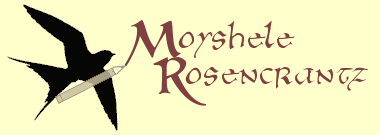The second in a series of blog entries in which my grandfather, Arieh Rabani (Lova Rabinovitch), tells his adventures walking from the Soviet Union to Israel (1927-1929). You'll find the first part here. In this part, Lova makes it to a sanatorium in Georgia, earns some money, and prepares to steal across the border to Turkey.
Thursday, 30 June 2016
Monday, 27 June 2016
My grandfather's exodus - part 1
The first in a series of blog entries in which my grandfather, Arieh
Rabani (Lova Rabinovitch), tells his adventures walking from the Soviet
Union to Israel (1927-1929).
Friday, 24 June 2016
Milena
a book review of Milena, by Margarete Buber-Neumann
I’ve decided to save impressions of occasional books I read from oblivion. I won’t feign journalistic neutrality: I’ll shamelessly mix in my own experience and sensibility.
I picked up Milena while browsing through the shelves of a local used bookshop, L’ivre Livre, on a pedestrian street of medieval Foix. As usual, I gravitated towards the sections on history and autobiography. My eye was on the lookout for anything to do with the Nazi concentration camps and genocide. I strongly dislike the word “holocaust” as it takes the brutal de-humanisation, shooting, gassing and burning of millions and raises it to the level of a religious offering – which is exactly how the Nazi leaders would like us to see it. The word “shoah” is inappropriate in that it is modern Israeli, whereas the vast majority of Jewish victims spoke Yiddish. The Yiddish word, “khurbm”, is too little known to be of use in everyday conversation. So I will stick to “Nazi genocide” to describe my small but growing library of books covering the period, mostly first-hand accounts by victims, with Primo Levi holding a place of honour.
I’ve decided to save impressions of occasional books I read from oblivion. I won’t feign journalistic neutrality: I’ll shamelessly mix in my own experience and sensibility.
I picked up Milena while browsing through the shelves of a local used bookshop, L’ivre Livre, on a pedestrian street of medieval Foix. As usual, I gravitated towards the sections on history and autobiography. My eye was on the lookout for anything to do with the Nazi concentration camps and genocide. I strongly dislike the word “holocaust” as it takes the brutal de-humanisation, shooting, gassing and burning of millions and raises it to the level of a religious offering – which is exactly how the Nazi leaders would like us to see it. The word “shoah” is inappropriate in that it is modern Israeli, whereas the vast majority of Jewish victims spoke Yiddish. The Yiddish word, “khurbm”, is too little known to be of use in everyday conversation. So I will stick to “Nazi genocide” to describe my small but growing library of books covering the period, mostly first-hand accounts by victims, with Primo Levi holding a place of honour.
Tuesday, 21 June 2016
Avek di yunge yorn
If ever there was a Yiddish song that proved the Jewish people were
influenced by Ukranian folk songs, this must be it. The theme is
characteristic of folk songs: "My youth has fled. Oy vey. And I didn't
even carpe diem!" The melody is so typical of Eastern European folk
songs, that it's almost strange to hear it sung in Yiddish. You'd expect
it to be sung by three lovely young Ukranian peasant girls, dressed in
beautiful white dresses embroidered with red, blue and yellow patterns,
smiling brightly, and singing in perfect harmony with nasal voices
(apparently, singing through the nose helped project the sound farther
out to the wedding guests in the days preceding amplifiers and
microphones). Anyway, here it is, with my best attempt at a nasal
folksinger's voice.
Thursday, 16 June 2016
The Gorilla
I began translating the songs of the great French singer-songwriter, Georges Brassens, about 15 years ago. Here's one of my very first translations of Brassens into English - "The Gorilla"
Subscribe to:
Posts (Atom)
